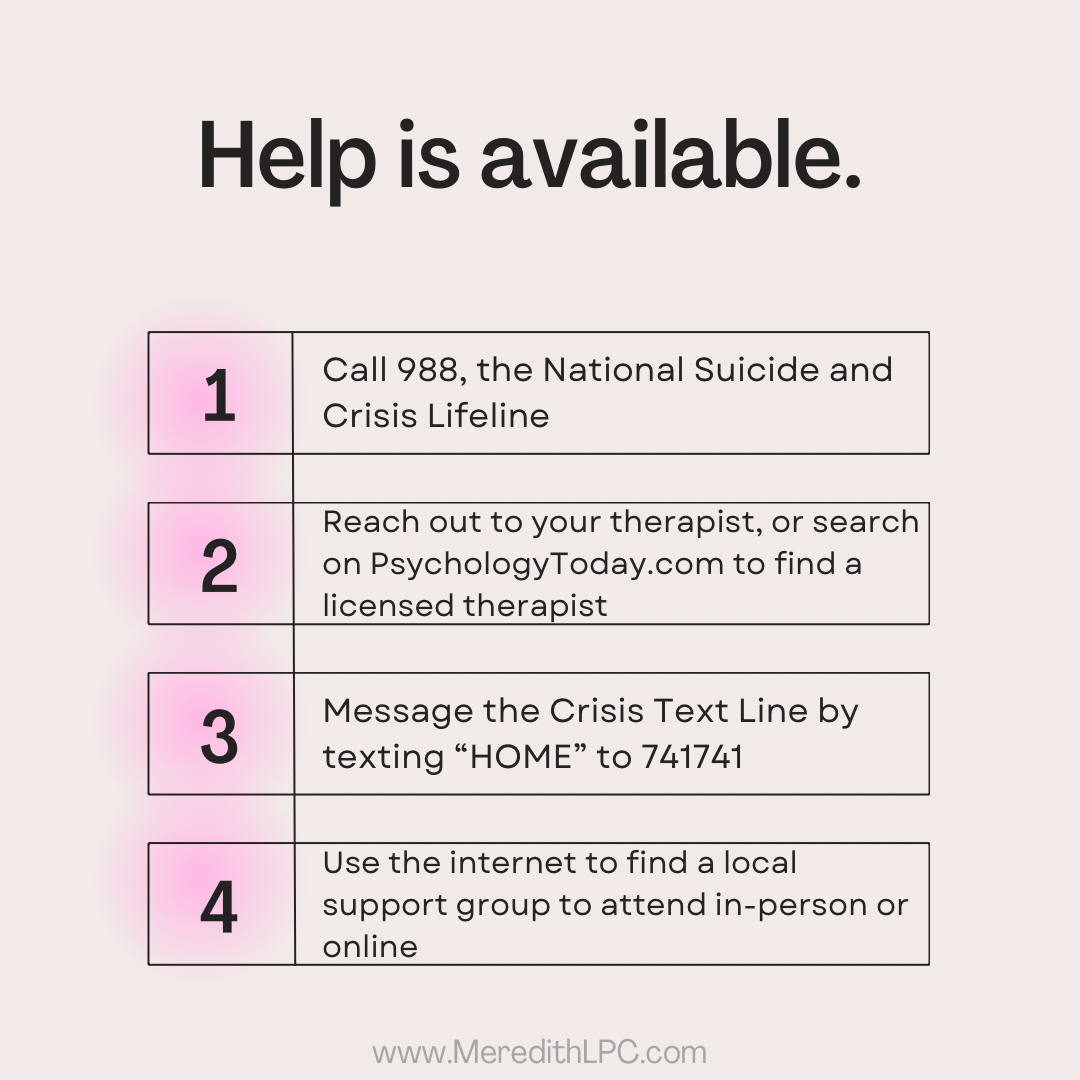How to Cope After a Mass Shooting
Trigger warning: This post mentions gun violence.
Please note that this post is intended for the communities surrounding a shooting, and not necessarily those who have experienced a shooting directly. For those who have been directly involved in a shooting, more intensive strategies and treatment would be recommended.
Heartbroken. Frightened. Infuriated. Powerless. Exhausted. Overwhelmed. Numb. These are just a few of the monumental emotions that communities may experience following a mass shooting, such as the recent school shooting that took place in my home state of Georgia at Apalachee High School.
While it’s normal and natural to have these feelings, such intense emotions can take a toll on how we feel physically and mentally, and how we behave. Following a traumatic event, it can be helpful to prioritize coping strategies as you process and find a path towards recovery.
Limit news exposure. It’s important to stay informed, but constant exposure can increase negative feelings and possibly even contribute to PTSD symptoms. Be intentional with news consumption by checking in with your mental state before and after consuming news, reviewing news sources only once or twice a day, and muting or unfollowing social media accounts that may trigger distress.
Practice self-care. This won’t erase your concerns and your experiences, but it can help regulate your nervous system and therefore reduce feelings and symptoms of stress and anxiety. Meditating, getting adequate sleep, exercising, and spending time outside are all great ways to practice self-care.
Find a support group. A significant benefit of support groups is that they provide a sense of belonging and connection. Groups that focus on topics like grief, trauma, or violence would be a great fit. Use the internet to find a group near you or one that’s offered online.
Surround yourself with positive social support. Talking can be a critical step towards healing. Reach out to friends and family who you trust to be supportive and nonjudgmental. If you don’t feel ready to talk or you need a break from talking, then make plans to spend time participating in pleasant activities with your support network.
Take action. While it’s common to feel helpless and powerless in the wake of a violent event, finding ways to take control back and participate in solutions can allow you to create meaning in your grief. Examples include participating in community healing events and memorials, donating to and supporting organizations that represent your values (such as efforts to create safer schools and prevent gun violence), contacting your political representatives to advocate for change, volunteering, learning more about issues that surround shootings (such as warning signs, contributing factors, and prevention efforts), and finding ways to support victims.
See fundraisers for the victims of the Apalachee shooting here.
Self-monitor for worsening symptoms. Even if you didn’t witness a traumatic event directly, you can still suffer from symptoms of posttraumatic stress disorder and other mental health concerns. Be mindful of persistent feelings of fear, sadness, or hopelessness that don’t improve over time. Watch for changes in sleep patterns, nightmares, or insomnia, as well as difficulty concentrating, irritability, or heightened anxiety in everyday situations. If these symptoms worsen or interfere with daily life, it’s crucial to seek further help.
Meet with a mental health provider. If you’re struggling to cope, experiencing disruptive symptoms, or feel you need additional support, schedule an appointment with a licensed therapist. A therapist can provide evidence-based treatment to help you heal. Two ways you can find a therapist are through your insurance company or browsing Psychology Today.
For anyone affected by the Apalachee shooting, many therapists across the state of Georgia are making their services available to those who need it, and several are offering discounted and free sessions. Reach out to the school directly for a list of resources. Georgia Emergency Management is also setting up a Community Recovery Center to offer free resources and mental health services - more info here.
Coping after a mass shooting is a personal and challenging process, but it’s important to remember that healing is possible and resources are available. The depths of the impact and recovery from such traumas cannot truly be summarized in a simple blog post; however, my hope is that this can be starting point. Healing may take time, but you don’t have to face it alone - community, connection, and care are available to help you rebuild.
This post is dedicated to everyone who has been impacted by the events at Apalachee High School, as well as everyone who has been impacted by gun violence worldwide.
Help is available. You are not alone.



